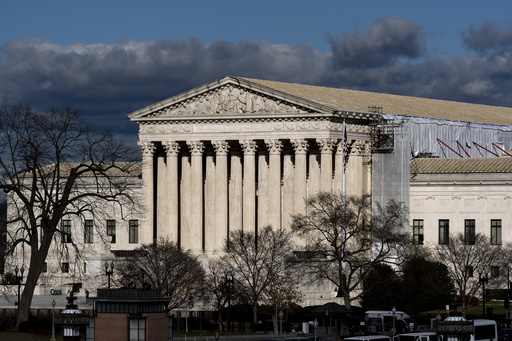WASHINGTON (AP) — The Supreme Court on Tuesday sided with a decorated veteran of the wars in Afghanistan and Iraq in a protracted fight with the government over 12 months of G.I. Bill educational benefits.
The court ruled 7-2 that the Department of Veterans Affairs improperly calculated the educational benefits for James Rudisill, a retired Army captain who lives in northern Virginia.
Rudisill, who’s now an FBI agent, is in a category of veterans who earned credit under two versions of the G.I. Bill. One version applied to people who served before the Sept. 11, 2001, attack. Congress passed new legislation after Sept. 11.
But Rudisill served both before and after the attack, including tours in Afghanistan and Iraq.
Each program gives veterans 36 months of benefits, and there’s a 48-month cap. Rudisill thought he had 10 months of benefits remaining under the old program, plus another year in the new system. But the VA denied the additional year.
Rudisill said the decision forced him to give up his plan to attend Yale Divinity School, be ordained as an Episcopal priest and reenter the Army as a chaplain.
His lawyers said the decision could affect roughly 1.7 million veterans, but the VA disputed that the number is “anything close” to 1.7 million, noting that his lawyers didn’t identify any other cases that presented the same issue.
___
Follow the AP’s coverage of the U.S. Supreme Court at https://apnews.com/hub/us-supreme-court.
This website uses cookies so that we can provide you with the best user experience possible. Cookie information is stored in your browser and performs functions such as recognising you when you return to our website and helping our team to understand which sections of the website you find most interesting and useful.
